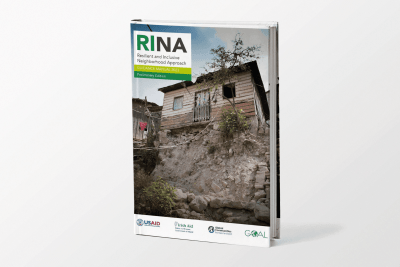What is RINA?
RINA (Resilient and Inclusive Neighbourhood Approach) is a multisector community-centred approach to facilitate more resilient and inclusive cities.
RINA applies a local systems approach using practical tools to build multi-stakeholder partnerships which can transform neighbourhoods and strengthen the local systems. Systems that are most relevant to the resilience and inclusion of informal and precarious urban settlements.
To achieve this, municipalities and their partners need to be able to engage directly with neighbourhoods and facilitate opportunities for all those who live and work. RINA seeks opportunities to address the root causes of vulnerability both proactively before crisis and as an integrated part of humanitarian assistance. Using the Neighborhood Approach, RINA advocates for not only meeting immediate needs in emergencies but also laying a foundation for rebuilding more resilience and inclusive neighborhoods.
The role of RINA
RINA is designed to support local governments, communities, and stakeholders in high-risk informal settlements. By partnering with these groups, RINA addresses the needs of residents and fosters resilience in these areas.
RINA aims to address the marginalisation and threats faced by over a billion people living in informal settlements. It is a community-centered approach that focuses on building resilient and inclusive neighbourhoods. RINA targets three levels: institutional/governance, socio-economic systems, and community.
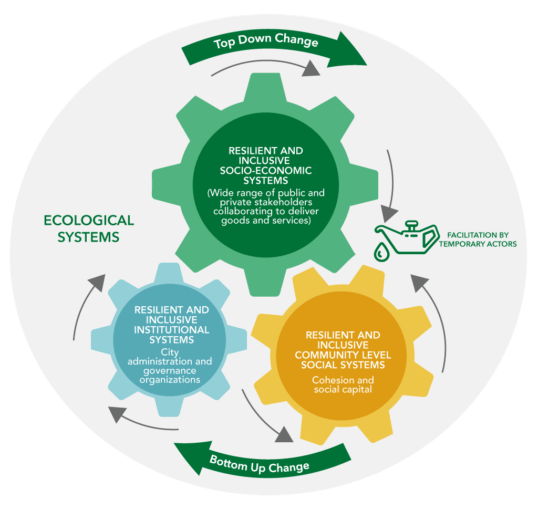
Why focus on urban resilience?
Rapid urban expansion in the form of informal settlements leads to increased disaster risks and social exclusion. Currently, 1 billion people live in informal settlements.
Vulnerable populations in low-income countries are seven times more likely to die from disasters. Furthermore, 59% of cities with at least 500,000 inhabitants are at high risk of exposure to natural hazards.
The practical tools, guidance, and case studies that comprise RINA offer insights into reducing the marginalisation and vulnerability of this population.
RINA in Action
The RINA Guidance Manual
The RINA Guidance Manual is a comprehensive resource based on successful urban upgrading programmes implemented by GOAL and Global Communities. It outlines 30 practical steps across four implementation phases and provides guidance on achieving the 10 Essentials of UNISDR's Making Cities Resilient framework at the neighbourhood level.
RINA was developed through a partnership between GOAL and Global Communities, funded by USAID. It involves collaboration with communities, municipalities, ministries, universities, and the private sector - working together to reduce vulnerability to urban crises.
RINA's 4 Guiding Principles
Community Centred
RINA prioritises community leadership and focuses on what works at the urban community or neighbourhood level.
Partnership
RINA seeks to strengthen local systems for resilient and inclusive neighbourhoods. It identifies critical systems and guides the development of partnerships to transform them.
Good Governance
RINA aims to enhance local government engagement with communities, private sector, state agencies and civil society. It promotes inclusive governance for resilience and inclusion in government plans.
Cost Effective
RINA recognises the importance of feasible and scalable solutions. Significant steps toward resilient and inclusive urban communities must be cost-effective and based on local resources.
Join our Mailing List
Keep up to date with the latest events, innovation, opportunities and impact on the ground across 13 countries.
To learn more and join our mission, please reach out to us at innovationlab@goal.ie. Together, we can make our cities more resilient and inclusive.
Implementation Tools
RINA provides practical tools to inform and guide actions for transforming informal settlements into resilient and inclusive urban communities. Key tools include:
Analysis of the Resilience of Communities to Disasters (ARC-D)
ARC-D (Analysis of Resilience of Communities to Disasters) is a user-friendly tool that assesses community resilience through a discussion-based survey of 30 key components. GOAL has an online platform, the Resilience Nexus (resiliencenexus.org), that captures real-time data from ARC-D assessments.
Resilience for Social Systems (R4S)
R4S (Resilience for Social Systems) is a tool developed by GOAL's Resilience, Innovation, and Learning Hub (RILH) in 2016. It helps inform a resilience-focused approach to humanitarian and development interventions by understanding socio-economic systems' responses to shocks and stresses. R4S assesses current resilience in these systems and offers recommendations for enhancing resilience, contributing to more inclusive and resilient societies.
Additional RINA Resources
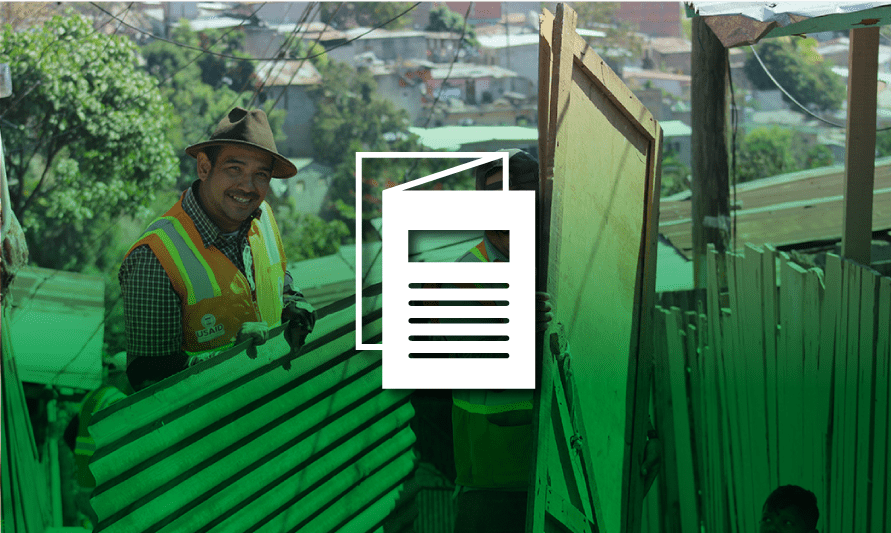
RINA Brochure

Community-based early warning systems
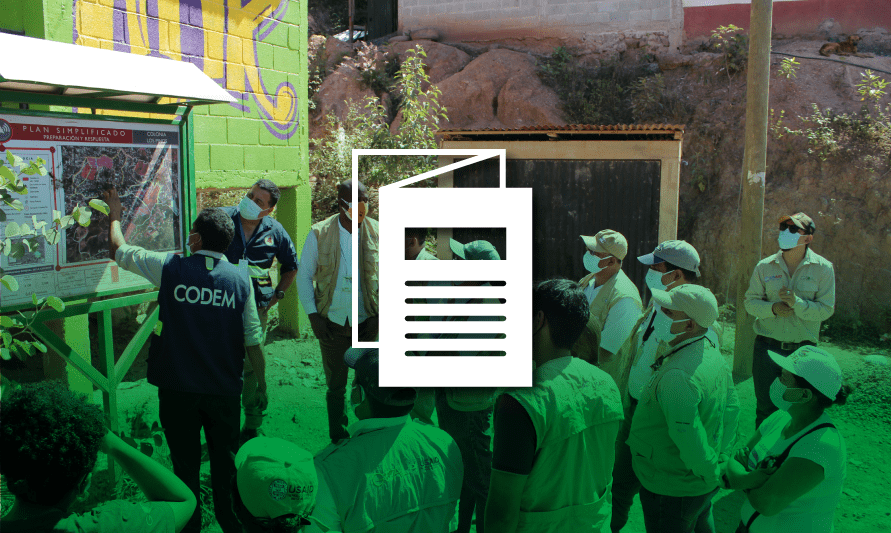
Warnings in Violence & Conflict: Coproducing warnings with, & for, those most at risk
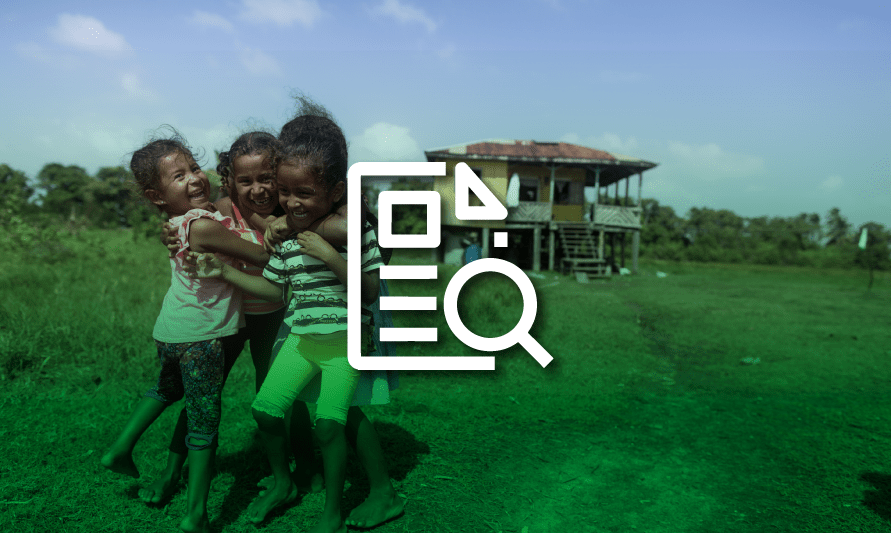
Practitioner approaches to measuring community resilience: Analysis of the resilience of communities to disasters toolkit
GOAL Innovation Lab
GOAL's Innovation Lab is a dynamic and collaborative unit established by GOAL to foster innovation within GOAL’s programmes and to promote this work both internally and externally with the wider development and humanitarian community.
The GOAL Lab is an open space that facilitates collaboration and partnership between innovation champions inside GOAL and key strategic external partners.

